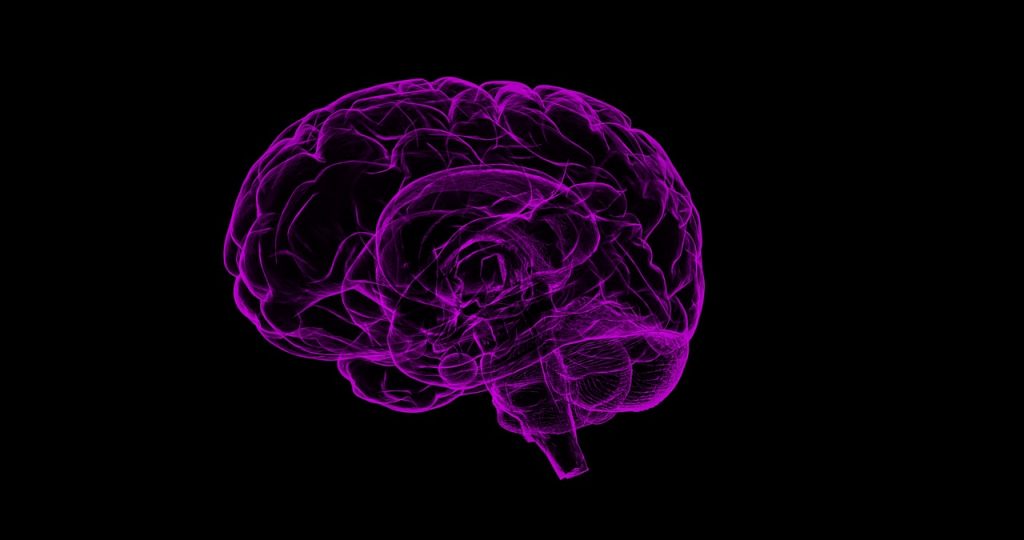November is National Alzheimer’s Disease Awareness Month

Back in 1983, President Ronald Reagan designated November as National Alzheimer’s Disease Awareness Month.
Back then, fewer than 2 million Americans had the disease. Today there are more than 5 million people with the disease.
Some sources indicate that number is likely to triple by 2050. It is the sixth leading cause of death in the USA and is climbing steadily in the rankings. Also, Alzheimer’s is the leading cause of dementia and accounts for about 65% of all dementia worldwide.
If a loved one has been diagnosed with Alzheimer’s, I pray that you have taken action to have their legal and healthcare needs handled before they are unable to make decisions. That is one of the most rewarding things family members can do for loved ones the moment there are symptoms.
In addition, I am providing an excerpt from a recent article posted at caring.com to help raise awareness of this heartbreaking disease.
1) We generally detect Alzheimer’s at the end-stage of the disease.
On average, Alzheimer’s follows a 14-year course from the onset of the first symptoms until death. There is some variability across patients but 14 years is pretty typical. The more surprising news is that, on average, we diagnose Alzheimer’s in years 8-10 of that disease course. This means that for most patients, symptoms go undiagnosed and untreated for at least seven years, during which time the lesions spread through the brain and cause irreparable damage. Please be aware that we diagnose Alzheimer’s disease far too late to optimize the effects of currently available treatments.
2) Memory loss is not a part of normal aging.
The point about end-stage detection raises an obvious question about “why” we diagnose this disease so late. There are many contributing factors but most of them can be reduced through awareness and education. Some patients resist medical attention in the early stages because they fear a stigmatizing label or because they are misinformed to believe that Alzheimer’s cannot be treated. Many people, including a startling number of physicians, incorrectly believe that memory loss is a normal part of aging. Improving the timeliness of diagnoses for Alzheimer’s disease is, in many ways, a problem that can be addressed through awareness and education. Please be aware that memory loss is not a part of normal aging and, regardless of the cause of the memory loss, timely medical intervention is best.
3) Current Alzheimer’s drugs are probably more effective than you think.
Our widespread practice of late detection has many negative consequences. For example, one of the reasons that current treatments are often deemed ineffective is because they are routinely prescribed for patients with end-stage pathology who already have massive brain damage. With earlier intervention, treatment can be administered to patients with healthier brains, many of whom will respond more vigorously to the recommended therapy. Yes, we need better treatments, but a great start would be to intervene earlier with the treatments we already have. Please be aware that currently approved treatments may be more effective than some headlines indicate.
4) Alzheimer’s disease can be treated.
Another treatment related concept about which everyone should be aware is this: Preventing or slowing further brain damage is preferable to letting the damage spread without constraint. Yet, many physicians, patients, and caregivers conclude that any treatment short of a cure is not worthwhile. While today it is true that we have no cure for Alzheimer’s, that does not mean there is no treatment. With a good diet, physical exercise, social engagement, and certain drugs, many patients (especially those detected at an early stage) can meaningfully alter the course of Alzheimer’s and preserve their quality of life. Please be aware that “we have no cure” does not mean there is no treatment.
5) The Alzheimer’s drug pipeline is full.
Here’s another fact of which you should be aware: Through an intense research effort over the past twenty years, scientists have gained a lot of insight about Alzheimer’s disease mechanisms and about other factors that increase the risk for the disease. Much has been learned and some very promising drugs, based on sound theoretical approaches, are in FDA clinical trials right now. While much of the disease remains shrouded in mystery and we may still be a long way from better treatments, it is possible that an effective agent is already in the pipeline. Please be aware that, although we don’t know when, better treatments for Alzheimer’s are certainly on the way.
6) Taking good care of your heart will help your brain stay healthy.
Know this; the health of your brain is very closely tied to the health of your body, particularly your heart. Researchers have shown conclusively that high cholesterol, high blood pressure, and obesity all confer greater risk for cognitive decline. The mechanisms that keep oxygen-rich blood flowing through your body play a key role in maintaining a healthy brain. Everyone should be aware about the close association between vascular health and cognitive health. Please be aware that maintaining good vascular health will help you age with cognitive vitality.
7) Managing risk factors may delay or prevent cognitive problems later in life.
There are well-identified risk factors for Alzheimer’s disease that are within our power to manage. These include diabetes, head injuries, smoking, poor diet, lethargy, and isolation. With greater awareness of these facts, we can imagine a world where diabetics take more care to control their blood sugar, where helmets are more prevalent in recreational activities that are likely to cause head trauma, where people smoke less and eat more fruits and vegetables, and where everyone makes a better effort to exercise and to stay socially engaged on a regular basis. While these facts may not be well known, they are all well proven.
Galvanizing an effort to publicize them is one purpose of National Alzheimer’s Awareness Month. Please be aware that many risk factors for Alzheimer’s can be actively managed to reduce the likelihood of cognitive decline.
Looking to find an experienced estate lawyer in the Georgia area who is skilled in asset protection and estate plan preparation? Shannon Pawley is an attorney in Georgia with expertise in estate planning and asset protection. Shannon can provide assistance with creating an estate plan to include making a will and how to establish a trust properly. If you have questions about asset protection or questions about making an estate plan, reach out to Shannon and she will be glad to help answer all the estate planning questions you might have!







